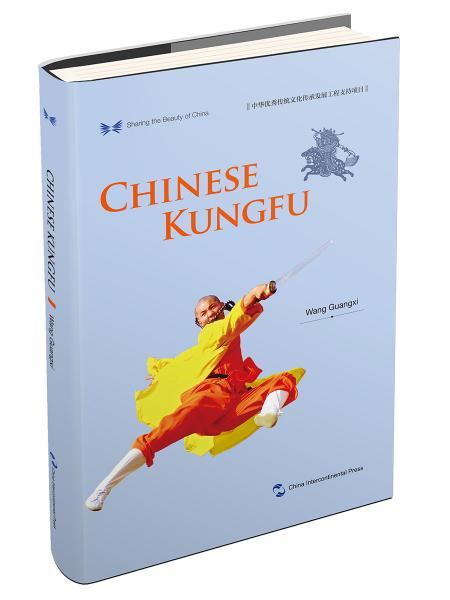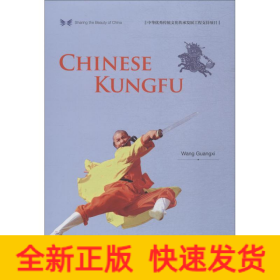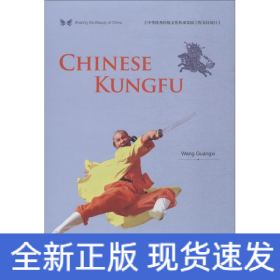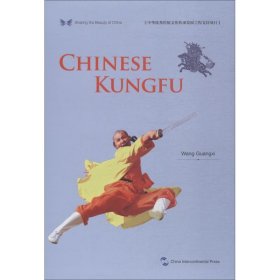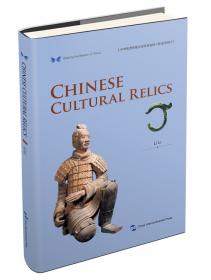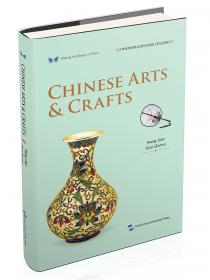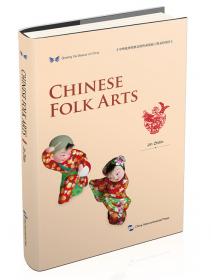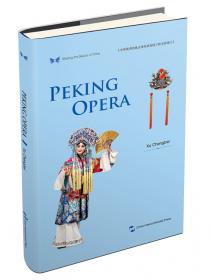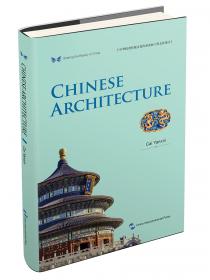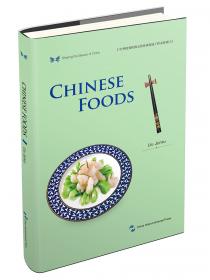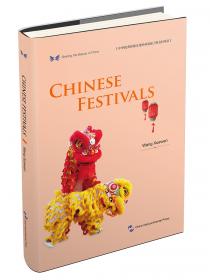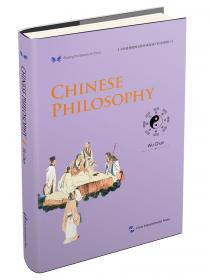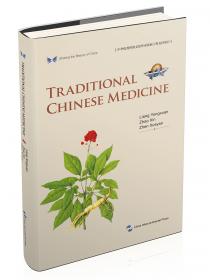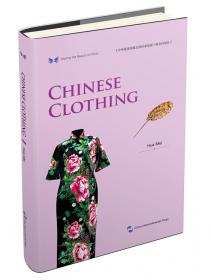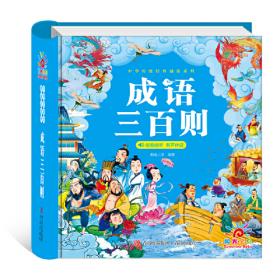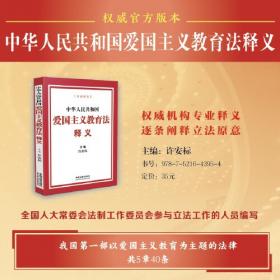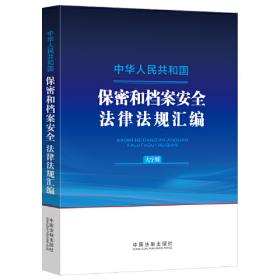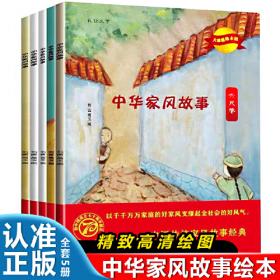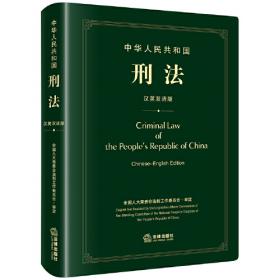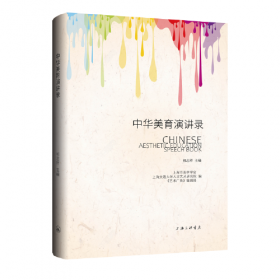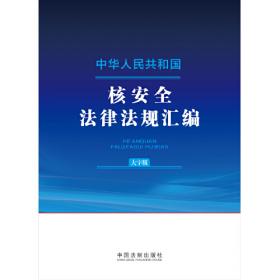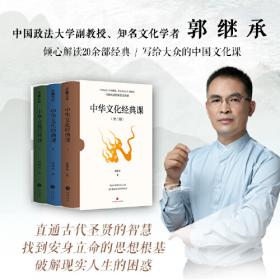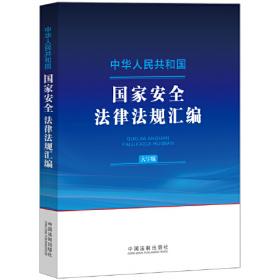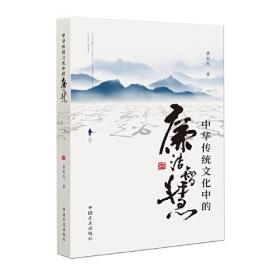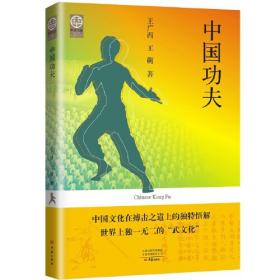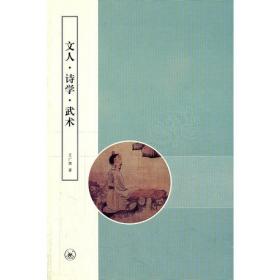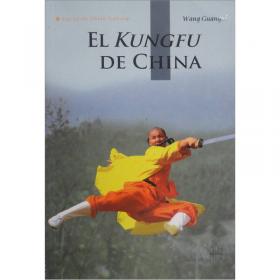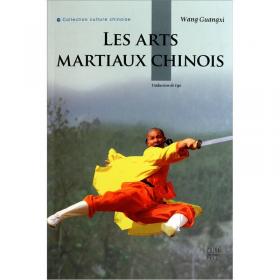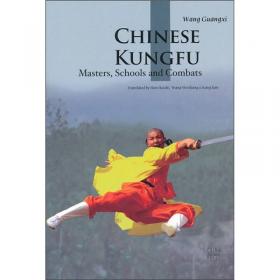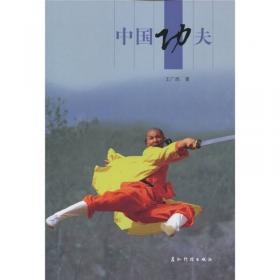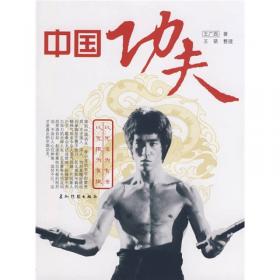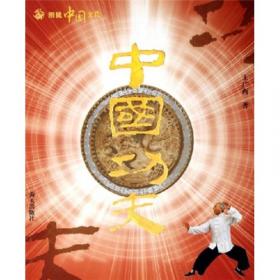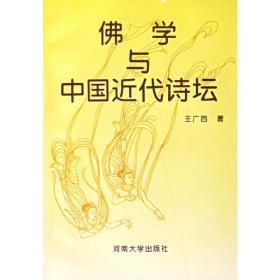中华之美丛书:中国功夫(英)
出版时间:
2018-08
版次:
1
ISBN:
9787508540146
定价:
160.00
装帧:
精装
开本:
16开
页数:
140页
字数:
100千字
正文语种:
英语
6人买过
-
“中华之美”丛书围绕中华优秀传统文化这一主题,择取其中15个专题分别加以介绍。这15个专题,包括以思想、智慧、艺术为主的“无形遗产”,以工艺、器物为主的“有形遗产”,以衣食住行乐为主的“民俗生活”,它们精心构架,有机结合,勾勒出中国文化的一个总体面貌,并反映出“中华文化的理念、智慧、气度、神韵”。
中国功夫是一种特殊的文化形态,它以攻防搏击为表现形式,以丰富的套路、招式、功法为具体内容,在激烈的身体对抗(多数表现为假想对抗和模拟对抗)中敢于胜利并善于胜利。中国功夫是千百年来民族智慧的结晶,是民族传统文化在武技一道的体现,也是民族心理个性在健身自卫领域的合理反映。中国功夫不仅仅是搏击术,更不是单纯的拳脚运动,也不是力气与技法的简单结合,它饱含着哲理,深蕴着先哲们对生命和宇宙的参悟,以一种近乎完美的运动形式诠释着某种古老的哲学思想,追求那种完美而和谐的人生境界。
Wushu, the Chinese martial art form known as kungfu in the West, embodies the national traditional culture in martial art form and also reflects the self-defense and health practices of Chinese people. The core philosophy of Wushu is drawn from the Confucius principle of physical and mental integration combined with neutralization; the Taoist principle of dynamic balance; the Buddhist principle of showing cultural syncretism of Confucianism, Daoism and Buddhism in China; and the Eastern theory, which believes man is an integral part of nature. 王广西,曾任河南省社会科学院文学研究所研究员、河南省文史研究馆馆员、中国近代文学研究会常务理事、郑州大学体育学院中原武术文化研究中心副主任。长期从事近代文学和武林文化研究,著有《佛学与中国近代诗坛》《左宗棠》《中国武术与武林气质》《中国武术》《功夫——中国武术文化》《中原文化大典?武术卷》等。
Wang Guangxi, whose pen name is Lu Cao, was born in Xixia, Henan province in 1941 and died in 2008. He graduated from the Department of Chinese Language and Literature of Henan University. He had served as a researcher in the Literature Research Institute of Henan Academy of Social Science, a fellow in the Henan Research Institute of Culture and History, standing director of Modern Chinese Literature Research Society and deputy dean of Wushu Culture Research Center, Physical Education Institute, Zhengzhou University. His life was devoted to modern literature and wushu culture research, and his works include Buddhism and Chinese Modern Poetry, Biography of Zuo Zongtang, Kong Fu-Culture of Chinese Wushu Circles, Chinese Soldier, Chinese Wushu and Wushu Spirit and Central Plaint Culture ?Wushu. Foreword
The Origins of Martial Arts
Principles of Wushu
Schools of Wushu
Shaolinquan Family
Wudangquan Family
Emeiquan Family
Nanquan Family
Taijiquan Family
Xingyiquan Family
Baguaquan Family
Weapons
Short Weapons
Long Weapons
Hidden Weapons (anqi)
Three Stages of Chinese Wushu Practice
Characteristics of Chinese Wushu
Systematic
Strict Order
Principle of Gradualness
Nurturing qi and Moral Cultivation
Aesthetics
Chinese Wushu and Chinese Culture
Wushu and Regimen
Wushu and Literatures, Films and TV
Chinese and Foreign Wushu Exchange
Two Big Challenges in the Martial History
Chinese Wushu Going Global
Development of Modern Chinese Wushu
Modern Wushu Centers (schools)
Wushu Education at Colleges and Universities
Wushu Competitions and Olympic Performance Events
Folk Wushu Development
Development Tendency
-
内容简介:
“中华之美”丛书围绕中华优秀传统文化这一主题,择取其中15个专题分别加以介绍。这15个专题,包括以思想、智慧、艺术为主的“无形遗产”,以工艺、器物为主的“有形遗产”,以衣食住行乐为主的“民俗生活”,它们精心构架,有机结合,勾勒出中国文化的一个总体面貌,并反映出“中华文化的理念、智慧、气度、神韵”。
中国功夫是一种特殊的文化形态,它以攻防搏击为表现形式,以丰富的套路、招式、功法为具体内容,在激烈的身体对抗(多数表现为假想对抗和模拟对抗)中敢于胜利并善于胜利。中国功夫是千百年来民族智慧的结晶,是民族传统文化在武技一道的体现,也是民族心理个性在健身自卫领域的合理反映。中国功夫不仅仅是搏击术,更不是单纯的拳脚运动,也不是力气与技法的简单结合,它饱含着哲理,深蕴着先哲们对生命和宇宙的参悟,以一种近乎完美的运动形式诠释着某种古老的哲学思想,追求那种完美而和谐的人生境界。
Wushu, the Chinese martial art form known as kungfu in the West, embodies the national traditional culture in martial art form and also reflects the self-defense and health practices of Chinese people. The core philosophy of Wushu is drawn from the Confucius principle of physical and mental integration combined with neutralization; the Taoist principle of dynamic balance; the Buddhist principle of showing cultural syncretism of Confucianism, Daoism and Buddhism in China; and the Eastern theory, which believes man is an integral part of nature.
-
作者简介:
王广西,曾任河南省社会科学院文学研究所研究员、河南省文史研究馆馆员、中国近代文学研究会常务理事、郑州大学体育学院中原武术文化研究中心副主任。长期从事近代文学和武林文化研究,著有《佛学与中国近代诗坛》《左宗棠》《中国武术与武林气质》《中国武术》《功夫——中国武术文化》《中原文化大典?武术卷》等。
Wang Guangxi, whose pen name is Lu Cao, was born in Xixia, Henan province in 1941 and died in 2008. He graduated from the Department of Chinese Language and Literature of Henan University. He had served as a researcher in the Literature Research Institute of Henan Academy of Social Science, a fellow in the Henan Research Institute of Culture and History, standing director of Modern Chinese Literature Research Society and deputy dean of Wushu Culture Research Center, Physical Education Institute, Zhengzhou University. His life was devoted to modern literature and wushu culture research, and his works include Buddhism and Chinese Modern Poetry, Biography of Zuo Zongtang, Kong Fu-Culture of Chinese Wushu Circles, Chinese Soldier, Chinese Wushu and Wushu Spirit and Central Plaint Culture ?Wushu.
-
目录:
Foreword
The Origins of Martial Arts
Principles of Wushu
Schools of Wushu
Shaolinquan Family
Wudangquan Family
Emeiquan Family
Nanquan Family
Taijiquan Family
Xingyiquan Family
Baguaquan Family
Weapons
Short Weapons
Long Weapons
Hidden Weapons (anqi)
Three Stages of Chinese Wushu Practice
Characteristics of Chinese Wushu
Systematic
Strict Order
Principle of Gradualness
Nurturing qi and Moral Cultivation
Aesthetics
Chinese Wushu and Chinese Culture
Wushu and Regimen
Wushu and Literatures, Films and TV
Chinese and Foreign Wushu Exchange
Two Big Challenges in the Martial History
Chinese Wushu Going Global
Development of Modern Chinese Wushu
Modern Wushu Centers (schools)
Wushu Education at Colleges and Universities
Wushu Competitions and Olympic Performance Events
Folk Wushu Development
Development Tendency
查看详情
-
九五品
北京市房山区
平均发货15小时
成功完成率72.36%
-
全新
北京市朝阳区
平均发货11小时
成功完成率88.24%
-
全新
北京市房山区
平均发货8小时
成功完成率96.16%
-
全新
广东省广州市
平均发货17小时
成功完成率94.97%
-
全新
河北省保定市
平均发货25小时
成功完成率84.18%
-
全新
山东省济宁市
平均发货53小时
成功完成率83.75%
-
九品
北京市昌平区
平均发货23小时
成功完成率88.56%
-
九品
北京市东城区
平均发货25小时
成功完成率89.65%
-
九品
北京市海淀区
平均发货22小时
成功完成率90.11%
-
全新
湖南省长沙市
平均发货33小时
成功完成率85.55%
-
全新
北京市海淀区
平均发货15小时
成功完成率87.92%
-
全新
四川省成都市
平均发货21小时
成功完成率90.13%
-
全新
北京市通州区
平均发货9小时
成功完成率90.02%
-
全新
四川省成都市
平均发货7小时
成功完成率98.71%
-
全新
浙江省嘉兴市
平均发货18小时
成功完成率97.35%
-
全新
北京市通州区
平均发货9小时
成功完成率93.35%
-
全新
北京市西城区
平均发货11小时
成功完成率93.84%
-
全新
北京市顺义区
平均发货11小时
成功完成率93.92%
-
全新
天津市河东区
平均发货24小时
成功完成率88.46%
-
全新
广东省广州市
平均发货17小时
成功完成率94.56%
-
 2
2
全新
江苏省无锡市
平均发货10小时
成功完成率96.75%
-
中国功夫
按标题名购买,批量下载图片有时不对应,多本图片为其中一本,有问题请联系客服。
全新
河北省保定市
平均发货26小时
成功完成率90.06%
-
全新
湖南省长沙市
平均发货31小时
成功完成率89.34%
-
 2
2
全新
江苏省无锡市
平均发货9小时
成功完成率94.79%
-
全新
河北省保定市
平均发货15小时
成功完成率92.51%
-
中国功夫
正版新书 新华官方库房直发 可开电子发票
全新
江苏省南京市
平均发货7小时
成功完成率95.64%
-
中国功夫
正版新书 新华官方库房直发 可开电子发票
全新
江苏省南京市
平均发货5小时
成功完成率98.19%
-
中国功夫
正版新书 新华官方库房直发 可开电子发票
全新
江苏省南京市
平均发货14小时
成功完成率82.7%
-
 2
2
全新
河北省廊坊市
平均发货28小时
成功完成率87.33%
-
全新
江苏省无锡市
平均发货8小时
成功完成率96.18%
-
全新
山东省泰安市
平均发货23小时
成功完成率82.54%
-
全新
浙江省嘉兴市
平均发货9小时
成功完成率95.48%
-
中华之美丛书:中国功夫(英)
本店所售图书,保证正版新书,有个别图片和实书封面不一样,以实书封面为准,最快当天,一般隔天发货。支持7天无理由退换货.开票联系客服
全新
北京市西城区
平均发货16小时
成功完成率91.62%
-
全新
河北省保定市
平均发货27小时
成功完成率86.26%
-
全新
河北省保定市
平均发货28小时
成功完成率90.36%
-
 5
5
全新
北京市丰台区
平均发货28小时
成功完成率85.93%
-
全新
北京市房山区
平均发货34小时
成功完成率82.97%
-
全新
浙江省杭州市
平均发货5小时
成功完成率82.39%
-
全新
河北省保定市
平均发货32小时
成功完成率87.36%
-
全新
河北省保定市
平均发货24小时
成功完成率83.6%
-
九品
广东省东莞市
平均发货8小时
成功完成率94.04%
-
九品
广东省东莞市
平均发货8小时
成功完成率92.41%
-
九品
广东省东莞市
平均发货8小时
成功完成率95.29%
-
全新
天津市河北区
平均发货25小时
成功完成率78.78%
-
全新
海南省海口市
平均发货22小时
成功完成率80.92%
-
全新
天津市河北区
平均发货25小时
成功完成率78.78%
-
全新
四川省成都市
平均发货22小时
成功完成率77.2%
-
 2
2
全新
天津市东丽区
平均发货20小时
成功完成率91.48%
-
 3
3
九五品
北京市昌平区
平均发货19小时
成功完成率92.03%
-
全新
山东省泰安市
平均发货7小时
成功完成率76.47%

 占位居中
占位居中

